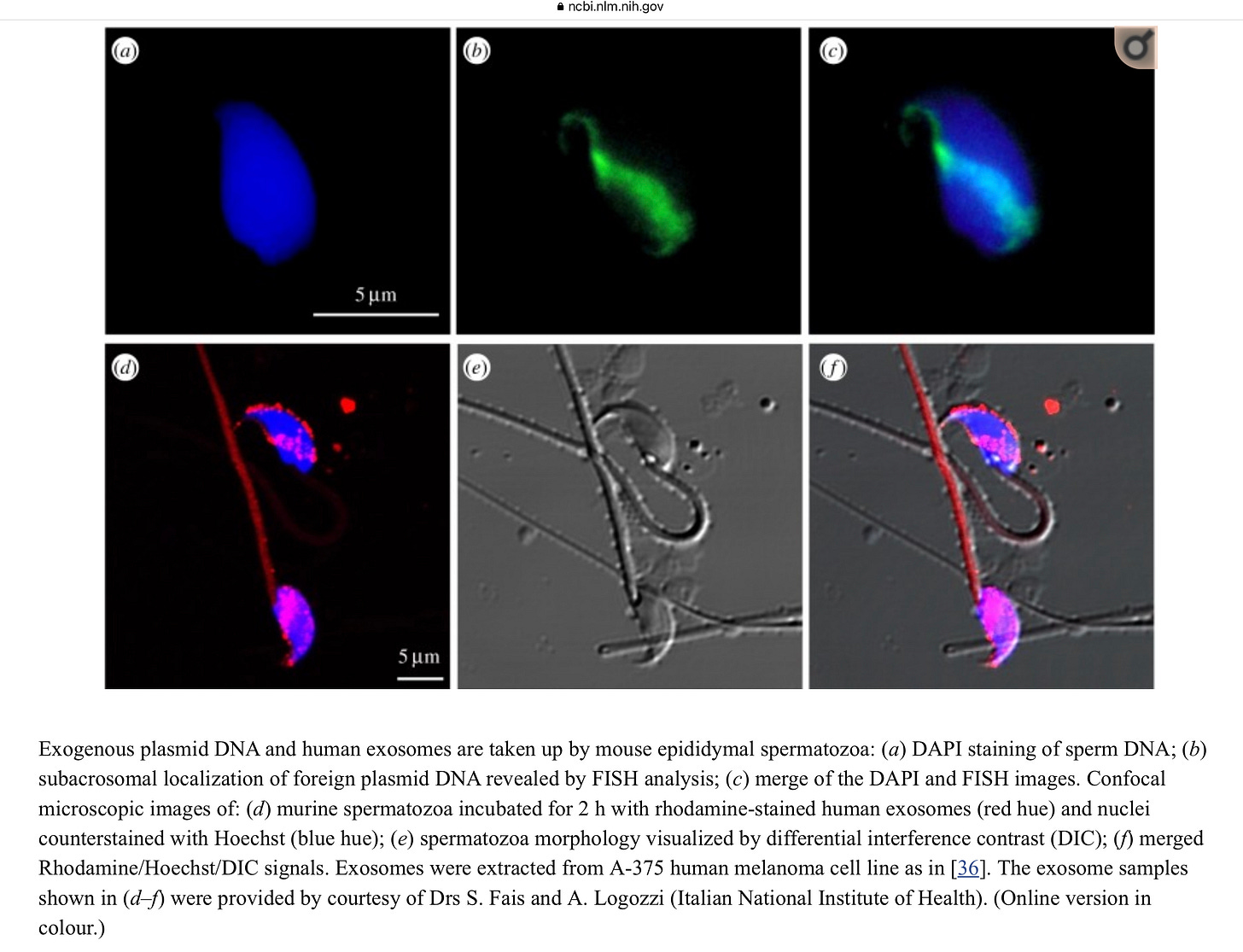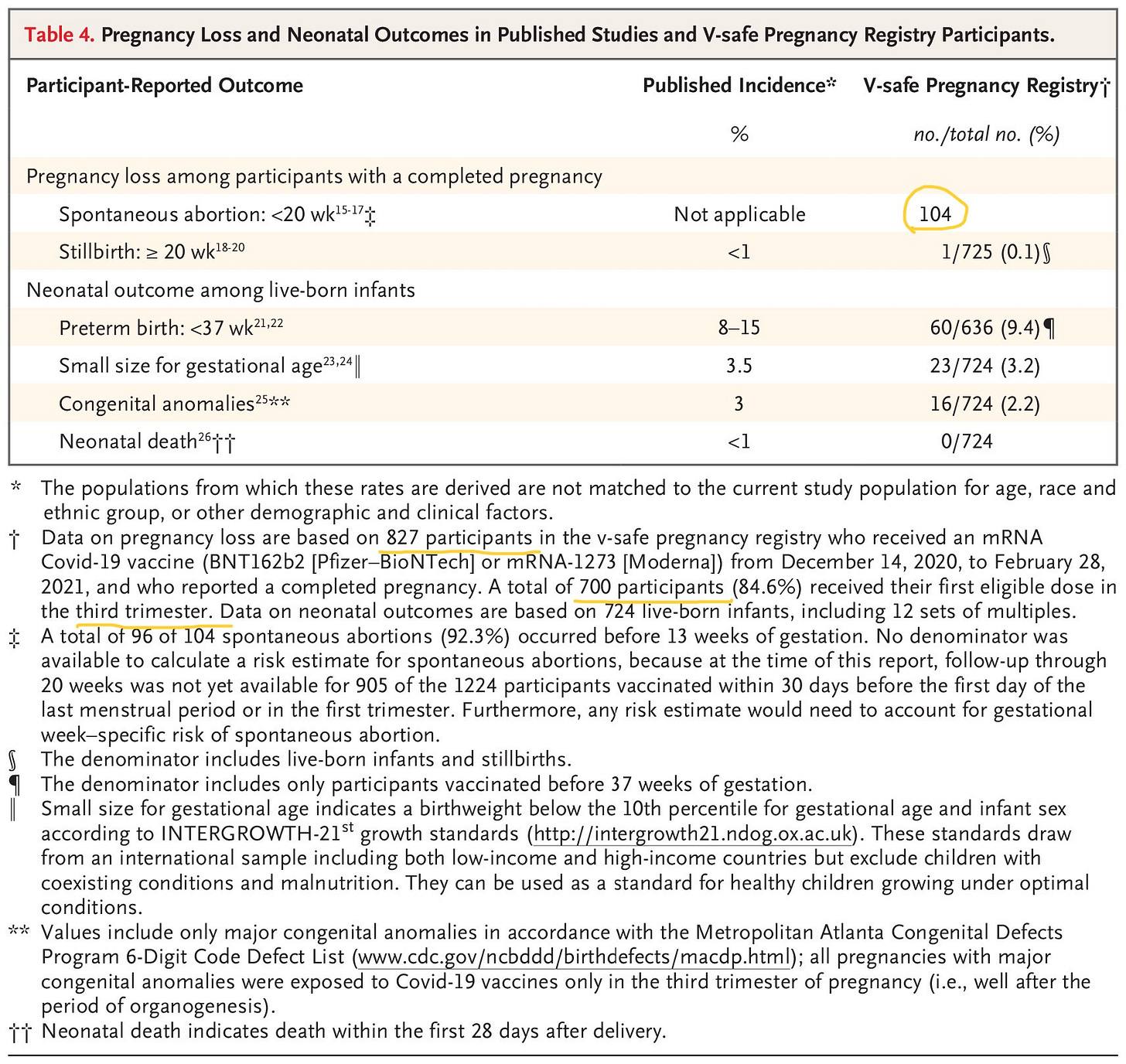Children might inherit spike protein DNA from vaccinated fathers: Seneff
If recognized by the immune system as “self,” the spike protein and its gene could evade immunity and might cause disease and death in offspring, researcher posits (Updated 3/9/22)
In an interview with Denis Rancourt, MIT Senior Scientist Stephanie Seneff describes (at around 1:01:30) how mRNA encoded by some Covid vaccines could theoretically be copied (reversed transcribed) into to plasmid (circular) DNA, taken up by sperm, and transferred to a fertilized egg (zygote).
In this scenario, the plasmid DNA containing the spike protein gene would remain episomal (outside chromosomes) and could continue to produce spike protein in the child who develops from that zygote.
If this happens and the spike protein doesn’t kill the child, the plasmid DNA would likely be heritable, i.e., transferable to the next generation.
Seneff:
Enough studies have been done to show it is a distinct possibility that messenger RNA [mRNA] can get converted into DNA by enzymes [i.e., reverse transcriptase, also called RNA-dependent DNA polymerase] that exist in human cells, and particularly they exist, for example, in immune cells, cancer cells, and sperm in the testes.
These cells have the capability of converting mRNA into DNA.
And in fact, I found an amazing paper talking about sperm long before COVID. They found that sperm could take up foreign mRNA — which is what these vaccines are — turn it into DNA, and produce little plasmids [circular DNA strands] containing that DNA.
And then at the time of fertilization, all the sperm, not just the one that fertilizes, are releasing these plasmids, and the fertilized egg takes them up and incorporates them.
And then those plasmids become something really permanent in that fertilized egg, in that the fetus develops out of that fertilized egg [zygote], so that child is actually born still carrying plasmids taken from the sperm that contain the mRNA as circular DNA, contained inside those plasmids, that can keep on making more DNA, and therefore more protein, for the rest of that child's life.
And even those [plasmids] can be passed on to its offspring. So that is really permanent. And that can happen, theoretically.
There was a study that showed that the spike protein was still around 15 months later [after vaccination].
And that might be through this DNA mechanism. I don't know. I mean, no one has said it's not.
It's part of what we don't know yet. That could become permanent.
The paper Dr. Seneff refers to might be this one (from which the figure above is taken) describing the process, called sperm-mediated gene transfer (SMGT).
SMGT is mediated by specific surface proteins acting as DNA-binding substrates that trigger internalization of DNA by spermatozoa.
A related paper authored by Drs. Seneff and Greg Nigh states:
The mRNA in the new SARS-CoV-2 vaccines could also get passed on from generation to generation, with the help of LINEs [long interspersed nuclear elements, sections of DNA encoding reverse transcriptase] expressed in sperm, via non-integrated cDNA [complementary DNA, which mirrors mRNA] encapsulated in plasmids.
The implications of this predictable phenomenon are unclear, but potentially far-reaching.
We don’t know whether or to what extent SMGT occurs in men jabbed with current vaccines, whether SMGT contributes to an apparently high rate of miscarriages (see the NEJM study below), or whether a similar process can occur in women too, such as by internalization of plasmid DNA into oocytes (eggs) without the help of sperm.
This potential mechanism is something to watch out for with spike protein vaccines, as are other issues with fertility and pregnancy:
What we know about Covid vaccines and fertility
Much is unknown, or at least publicly undisclosed, about long-term effects of Covid vaccines on reproduction and potentially heritable genetic disorders.
A June 2021 study in the New England Journal of Medicine found an 82% miscarriage rate (104 spontaneous abortions in 127 women) by the 20th week of pregnancy in women vaccinated in the first two trimesters.


For Pfizer’s vaccine, the only one approved — though not yet distributed — in the US, the FDA says:
There is “insufficient [available data] to inform vaccine-associated risks in pregnancy”;
The vaccine “has not been evaluated for the potential to cause carcinogenicity, genotoxicity, or impairment of male fertility”; and
There is insufficient available data “to assess the effects … on the breastfed infant or on milk production or excretion.”
 The approved vaccine “has not been evaluated for the potential to cause carcinogenicity, genotoxicity, or impairment of male fertility.” So we don’t know if it causes cancer, heritable genetic disease, or male sterility.Section 13.1 got some new updates. #genotoxicity #malefertility #COVID19Vaccine #productinsert https://t.co/MjsoLjGD1j
The approved vaccine “has not been evaluated for the potential to cause carcinogenicity, genotoxicity, or impairment of male fertility.” So we don’t know if it causes cancer, heritable genetic disease, or male sterility.Section 13.1 got some new updates. #genotoxicity #malefertility #COVID19Vaccine #productinsert https://t.co/MjsoLjGD1j carrot @themirandag
carrot @themirandag
Stephanie Seneff’s video interview: https://www.bitchute.com/video/Ups6x2XlpmMz/







Interesting and chilling possibilities to consider. So much is truly unknown about the effects of this injection (I prefer not to refer to it as a vaccine). My initial gut reaction to them was about the potential long term effects, which no one can know at this point. Certainly the rabid proponents of these mRNA products don't know, can't know. Thank you for posting this information.
Thanks Doc.